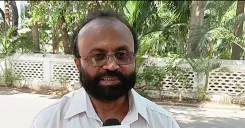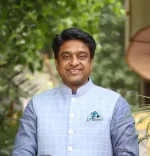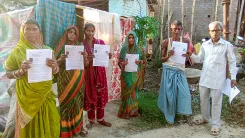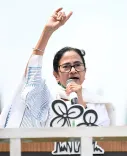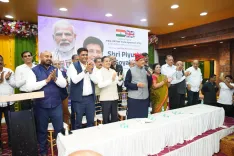Uttarakhand's UCC Implementation: BJP Hails, JD(U) Raises Alarm; Opposition Reacts
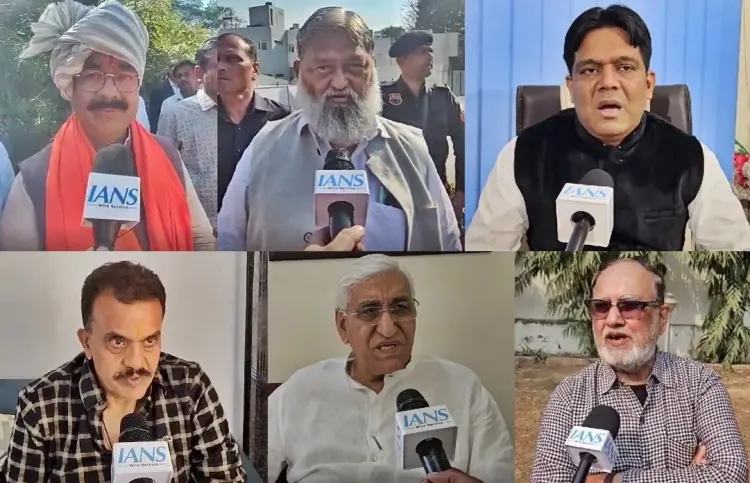
Synopsis
Key Takeaways
- Uttarakhand is the first state to implement the UCC.
- BJP and Shiv Sena support the move for national unity.
- Opposition parties argue it undermines cultural diversity.
- Online portal launched for various legal registrations.
- Concerns raised about inclusion of tribal communities.
New Delhi, Jan 27 (NationPress) Uttarakhand has made a historic advancement by becoming the first state in India to enforce the Uniform Civil Code (UCC), sparking intense political debates.
While the BJP and Shiv Sena have praised the state's decision as a progressive measure for national unity, opposition parties, including Congress, RJD, and a JD(U) leader, have voiced strong objections, claiming that this move threatens the nation's rich cultural diversity and could disrupt societal harmony.
The Chief Minister of Uttarakhand, Pushkar Singh Dhami, not only declared the UCC's implementation but also introduced an online platform for residents to register marriages, divorce, inheritance claims, live-in relationships, and their dissolution under the newly enacted law. Additionally, the state unveiled a set of guidelines for the law's execution, representing a significant milestone in the country’s legal framework.
BJP representatives quickly commended Uttarakhand’s decision. Arun Sao, the Deputy Chief Minister of Chhattisgarh, regarded the state's action as brave and suggested that Uttarakhand's experience could serve as a model for the entire nation.
“Uttarakhand has long contemplated the UCC, and its implementation should inspire further nationwide dialogue,” he remarked.
Anil Vij, the Transport Minister of Haryana, also expressed his congratulations to Uttarakhand, stating, “This is a significant administrative milestone. There should be a singular law for our country, and Uttarakhand has paved the way for others. It is essential to progress beyond antiquated systems.”
Sanjay Nirupam, a leader of Shiv Sena, also praised Uttarakhand for considering the needs of tribal communities within its UCC framework. “The government’s attention to the tribal population is commendable. Their inclusion in these legal reforms is a positive advancement,” Nirupam stated.
Nonetheless, the opposition has been forthright in their criticism.
Khalid Anwar, a JD(U) leader, contended that the UCC is at odds with India’s multicultural fabric.
“This initiative assaults our diversity. India is a mosaic of traditions, and a uniform law could dilute these rich cultures. Our party has consistently opposed the UCC, as we believe it could jeopardize our societal fabric,” Anwar asserted.
TS Singh Deo, a Congress leader, raised alarms regarding the exclusion of specific communities, particularly the tribal community, from the UCC.
“The law must resonate with the sentiments and customs of all communities. If we genuinely aim for a uniform civil code, it must encompass every segment of society without exceptions. This cannot simply be a one-size-fits-all solution,” he emphasized.
Abdul Bari Siddiqui, an RJD leader, cautioned that enforcing the UCC without broader consensus may undermine the Constitution and jeopardize India’s secular and democratic principles.
“Our nation is founded on the tenets of equality and unity. The Constitution ensures equal rights for all citizens. The UCC poses a risk to these principles, and such a move, even if enacted in a single state, could have extensive repercussions,” Siddiqui expressed fervently.

